Place, Power, and Possibility: Ten Books We Recommend Reading this Summer
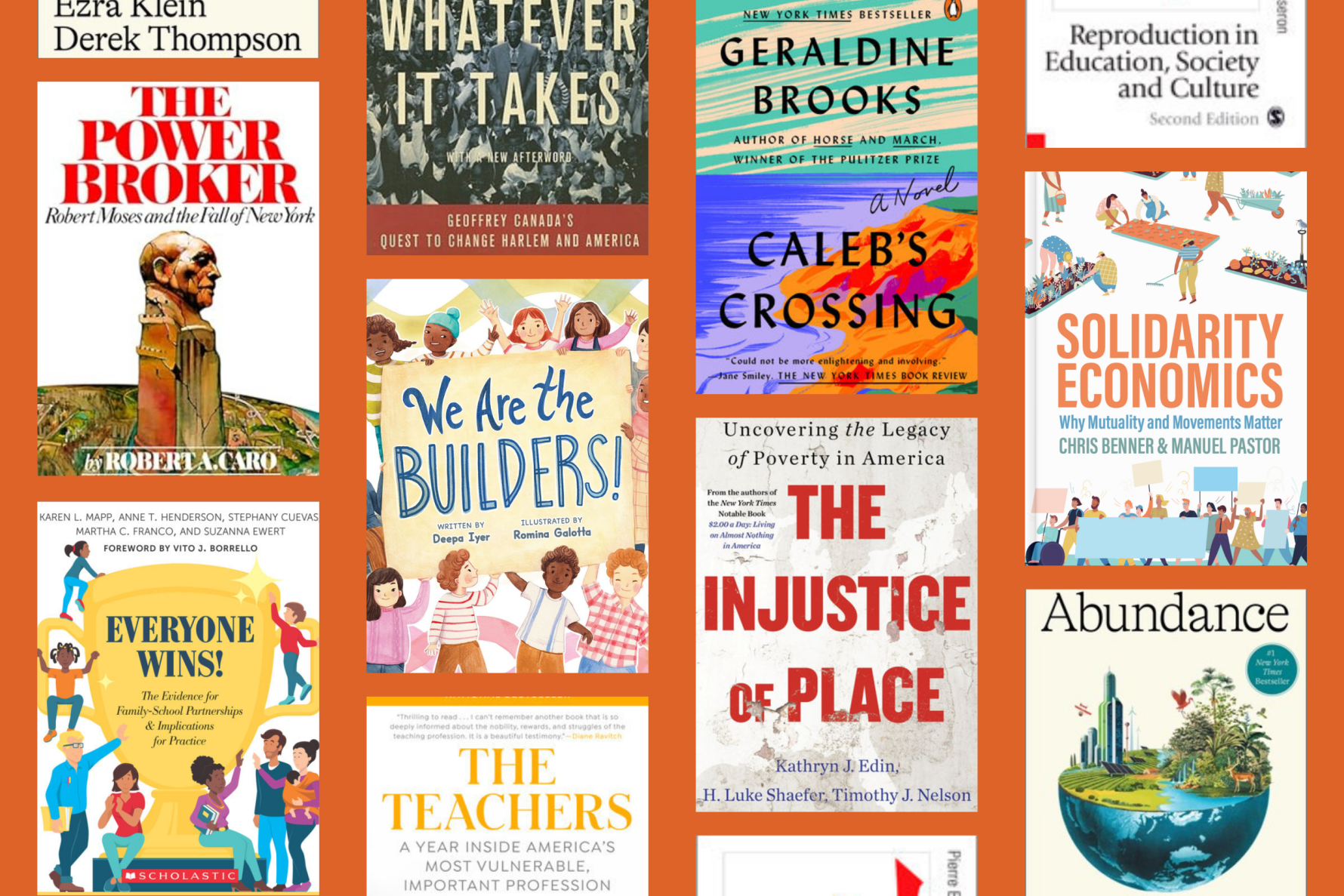
From memoirs to evidence-driven policy guides, the EdRedesign team shares what’s on their reading lists this summer.
As summer unfolds with longer days and a welcomed change of pace, it’s the perfect time to step back, reflect, and recharge with a good book in hand.
This year, EdRedesign is excited to introduce its first-ever Summer Reading List, featuring ten recommendations from our team. Whether you’re a community leader, educator, student, or lifelong learner, there’s something for everyone with recommendations ranging from fact-laden histories to children’s literature. There's one common thread – each book relates to the themes guiding our work: place, power, equity, and the possibilities that arise when we center children, families, and community in systems change.
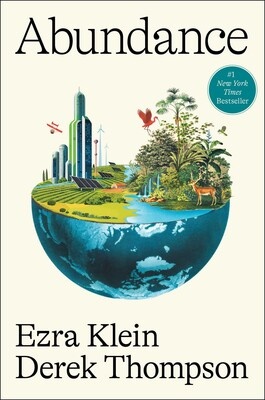
Abundance
Ezra Klein and Derek Thompson
A transformative and pragmatic approach to being morally ambitious in an era of divisive political gridlock, where we need bold ideas to reclaim the public sphere and showcase new forms of governance to address our most pressing public issues. The book advocates for a new "politics of plenty" and confronts the significant policy failures that have led our communities off course. “Abundance” delivers a hopeful call for a paradigm shift, the right antidote for these unprecedented times.
— Rob Watson, Executive Director

Caleb’s Crossing
Geraldine Brooks
It’s been several years since I read it, but I was struck at the time by the thought of Caleb leaving his island home to study at Harvard College. I think about him – him-the real Caleb – when I cross Cambridge Common, aware that he walked in the same place hundreds of years ago. I also think about how female protagonists would not have been educated at Harvard then. Additionally, I reflect on the ways we can include, how we support, the expectations we hold, and who determines what privilege is and who it is for.
— Ellen Wrigley, Finance and Program Administrator
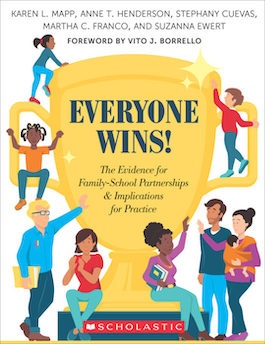
Everyone Wins!: The Evidence for Family-School Partnerships and Implications for Practice
Karen L. Mapp, Anne T. Henderson, Stephany Cuevas, Martha C. Franco, and Suzanna Ewert
In the collective impact field, strong and trusting relationships are essential for achieving meaningful and lasting change. This accessible and research-driven guide makes a compelling case for family-school partnerships as a powerful lever to advance equity, enhance student well-being, and promote upward mobility. Drawing on decades of evidence and real-world examples, the authors provide practical strategies for building trust, fostering cross-sector collaboration, and integrating family engagement into cradle-to-career systems. It is a must-read for educators, community leaders, and anyone committed to place-based partnerships that center families and drive systemic change.
— Chris Shelton, Director of Education Strategy and Cross-Sector Community Impact
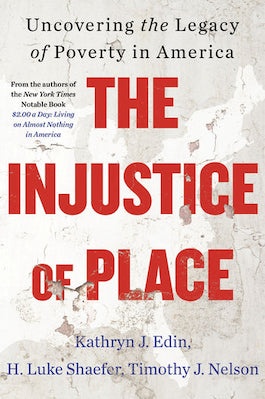
The Injustice of Place: Uncovering the Legacy of Poverty in America
H. Luke Shaefer, Kathryn Edin, and Timothy J. Nelson
From the authors of “$2.00 a Day: Living on Almost Nothing in America”, this 2024 release takes a place-based, data-driven approach to understanding persistent poverty. Focusing on rural America, the authors connect concentrated poverty to historical and structural factors, including extractive industries, single-industry towns, and systemic disinvestment. The book highlights how many well-meaning policies have failed to reflect rural realities and calls for research-driven, place-based strategies to promote upward mobility.
— Julie Allen, Senior Director of Strategic Communications, Development, and Operations

The Power Broker: Robert Moses and the Fall of New York
Robert A. Caro
As described by the publisher, “winner of both the Pulitzer and the Francis Parkman prizes, ‘The Power Broker’ tells the hidden story behind the shaping (and mis-shaping) of twentieth-century New York (city and state) and makes public what few have known: that Robert Moses was, for almost half a century, the single most powerful man of our time in New York, the shaper not only of the city's politics but of its physical structure and the problems of urban decline that plague us today.”
I recommend this book because it deals, in depth, with the dynamics of power, politics, and change at the local level. Robert Moses, once an idealist, became spectacularly successful at getting things done, but his success came at a high price.
— Paul Reville, Founder and Faculty Director
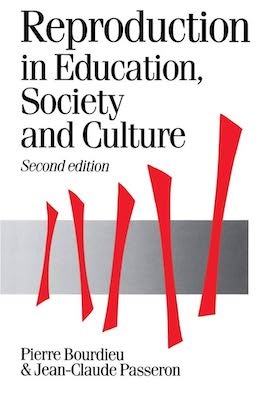
Reproduction in Education, Society, and Culture
Pierre Bourdieu and Jean-Claude Passeron
I read “Reproduction in Education, Society, and Culture” by French sociologists Pierre Bourdieu and Jean-Claude Passeron as an undergraduate, as part of a class titled “Gender, Race, and Education,” which helped shape my career trajectory. The book presents evidence that institutions, including school systems, primarily serve to reproduce existing class structures rather than provide opportunities for social mobility. It was foundational for me in understanding what I experienced in my large public high school: that while education could serve as a great equalizer, the education system, for the most part, did the opposite. Bourdieu also posited that there are four types of capital, including social capital, which are essential for social mobility.
— Lynne Sacks, Research Director
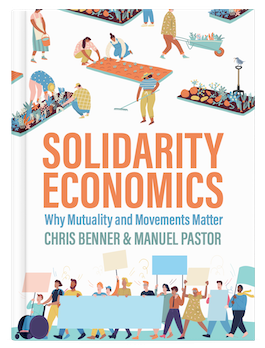
Solidarity Economics: Why Mutuality and Movements Matter
Manuel Pastor and Chris Benner
Traditional economics rests on the assumption that individuals act out of self-interest to maximize personal gain, yet this view is only part of the bigger picture. Sharing, caring, and a commitment to the collective good also serve as powerful motivations. In a world plagued by inequality, social divisions, and ecological devastation, can we create an alternative economic system rooted in cooperation? In this book, Benner and Pastor encourage us to envision a new form of solidarity economics—an approach anchored in our instincts for connection and community—and, in doing so, genuinely cultivate a more robust and sustainable economy. They argue that our current economy is already heavily reliant on mutuality, but the inequality and fragmentation fostered by the status quo erode this mutuality and, consequently, our economic well-being. They present the theoretical framework, policy agenda, and social movements necessary to revive solidarity and apply it to entire societies.
— Denisse Arias, Director of the Fellowship for Cradle-to-Career Partnership Leaders
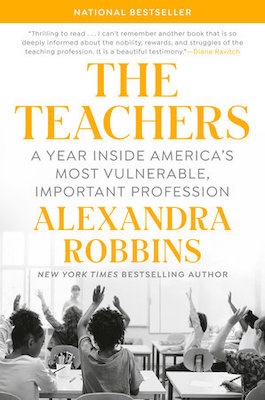
The Teachers: A Year Inside America’s Most Vulnerable, Important Profession
Alexandra Robbins
Winner of the 2024 DKG International Educators Book Award, Robbin’s “The Teachers” follows three educators throughout the school year to provide a detailed look at the challenges and joys of modern teaching. From dealing with underfunding and scheduling conflicts to breakroom drama, this book is heralded as a surprising but also inspiring account of a job that’s central to every community.
While this book focuses on teachers, it validates the experiences of everyone who works with children directly each day by showcasing the dedication and challenges of these professions.
— Oliver Truog, Director of Finance and Operations
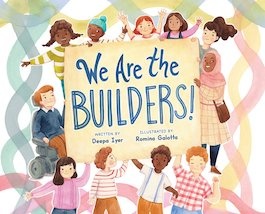
We Are the Builders!
Deepa Iyer
This book beautifully illustrates how everyone, including children, can make a difference in their community. Drawing on concepts from the social change ecosystem map theory, this story empowers young readers to envision themselves as changemakers in creating a more just and inclusive world. There’s a place for every individual, regardless of their skills or interests—and this collaboration fosters a strong and supportive community!
— Shoshana Zuckerman, Senior Program Coordinator
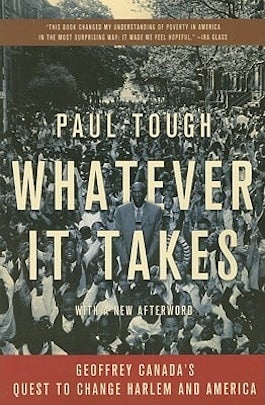
Whatever It Takes: Geoffrey Canada's Quest to Change Harlem and America
Paul Tough
I read “Whatever It Takes” over a decade ago in a child development graduate school course. Years later, I still remember how engrossed I was in Paul Tough's vivid account of the inception of the Harlem Children’s Zone (HCZ) and Geoffrey Canada’s pioneering vision. Tough doesn’t gloss over the difficult parts; instead, he poignantly captures the significant challenges Canada faced in getting HCZ off the ground. This is a must-read for anyone interested in the behind-the-scenes story of HCZ’s beginnings.
— Michelle Sedaca, Senior Research Manager

